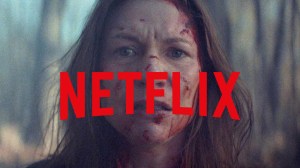It has been five years since Netflix’s The Toys That Made Us launched. The series, which has become a key piece of media for toy collectors and fans of nostalgic content, centers on…well, just what it sounds like. It looks back at the toys and brands that have shaped the creators of the series (and generation X more broadly). Created by Brian Volk-Weiss, the series premiered on December 22, 2017, and they’ve got more coming soon. The idea of a docu-series centering on the recent past doesn’t feel like an easy sell for a huge audience, but in the last five years, The Toys That Made Us has become a phenomenon.
Videos by ComicBook.com
And In a chat with ComicBook.com, Volk-Weiss admitted that he finds it surreal. The love of the series is such that he incredulously shared a story with us that he joked he didn’t know if anybody would believe.
“I’ll tell you something that happened two months ago,” Volk-Weiss shared. “I was at LAX with a celebrity — a pretty big celebrity. He has at least 25 million followers just on Instagram. We’re sitting there talking at LAX and this guy comes up to us and is like, ‘Hey, sorry to interrupt.’ The celebrity was like, ‘Oh no, it’s fans like you that paid for my house.’ The guy looked at him and very politely was like, ‘Oh, I’m so sorry. I was talking to Brian.’ I’ll be honest with you, I’m like, ‘Do I even tell my wife about this?’ On the one hand, she’ll probably believe me because I’m her husband.”
The irony is, the series is a staple of Netflix’s unscripted content now — and it was one of their first — but it took quite a long time to actually get that greenlight. Volk-Weiss created a sales tape that was filmed primarily at a store local to him, and pitched it all over the place before Netflix finally decided they wanted it.
“I was trying to sell the show for seven years before Netflix bought it,” Volk-Weiss said. “It was the luckiest thing. We were either the first or second unscripted Netflix original in history. We were part of a green light batch.”
Now, rather than just paying the bills by selling toys, Volk-Weiss is making toys, tied to the success of The Toys That Made Us. He says that anybody who thinks this was a grand master plan is giving him too much credit, joking, “I love toys. I don’t think that’s a secret.”
So, how did it come together?
“Everything was organic. It wasn’t like Toys That Made Us came out, and then I’m sitting there three months later being like, now we can make toys. It wasn’t like that,” Volk-Weiss explained. “What happened was, somebody else saw Toys That Made Us. That guy called me, his name’s Michael Goodman. That guy called me and he was like, ‘Hey, your brand is so good. I bet we could work together and you and I separately would have better careers if we worked together, because I could make a lot with your brand.’ Usually this bites me in the ass, but this is one of the few times where it worked. I took a risk, and he was absolutely right. Because Toys That Made Us was so popular and everybody knew Nacelle had made it in the toy community, he was able to go to the guy that owns Robo Force and say, ‘Hey, I’m working with Nacelle, they want to buy your copyright.’ Those conversations wouldn’t have been possible without Toys That Made Us, and I would’ve never met this Michael Goodman without Toys That Made Us. What I think I’m demonstrating is there wasn’t a master plan; we just went with it and if we saw an opportunity, we took a swing, and it was all very lucky.”
Here’s the official synopsis for The Toys That Made Us:
For some people, the favorite memories from their childhoods are playing with toys, some of which become iconic through the years as multiple generations of people play with the venerable playthings. This series takes a look at some of America’s greatest toy franchises, including the people and companies that created them, telling the stories of the rise — and, sometimes, fall — of the billion-dollar creations. Some of the featured toys are original creations, such as Barbie, while others are based on pop-culture franchises, including the Star Wars line.








